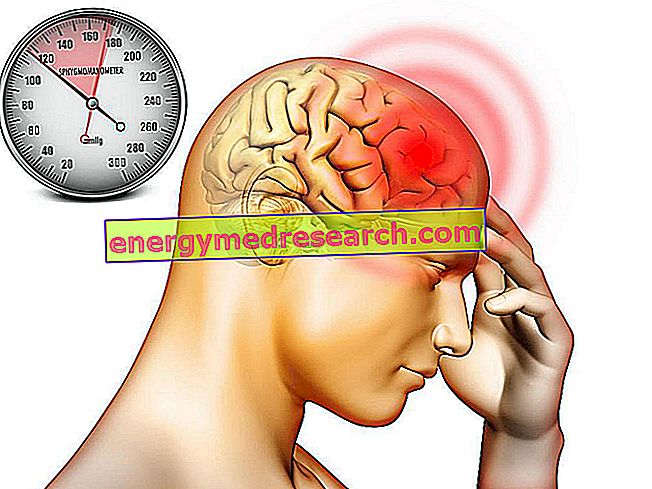
Encephalopathies are part of a particular group of pathologies, characterized by a structural and functional alteration of the brain .
The various types of encephalopathy differ from each other due to the triggering causes - to which they usually owe their names - for the symptoms, for the complications, for the treatment and for the prognosis.
Congenital or acquired, an encephalopathy can last a lifetime ( permanent encephalopathy ) or may have a more or less important margin of healing ( temporary encephalopathy ).
A form of encephalopathy of usually temporary nature is the so-called hypertensive encephalopathy, resulting from a serious morbid condition - called malignant hypertension - which determines a very marked and sudden increase in arterial pressure.
To induce a state of malignant hypertension - capable then of causing a hypertensive encephalopathy - can be various circumstances, among which in general:
- Acute nephritis (or acute glomerulonephritis ).
It is an inflammatory disease of the kidneys (specifically of the renal glomeruli), which, once affected, reduce their filtering capacity.
From a symptomatological point of view, acute nephritis begins with hematuria and proteinuria and continues with peripheral edema, increased serum creatinine and azotemia and ends with severe renal insufficiency.
- Eclampsia .
It is probably the most feared complication of pregnancy and consists in the appearance of convulsions, mental confusion, visual deficits and coma.
- Essential arterial hypertension .
It is a disease of the circulatory system, precisely of the arterial vessels of medium and large caliber, for which a cause or the factors that trigger it have not yet been discovered. It is said to be essential (or primary) to distinguish it from secondary arterial hypertension, which arises due to a wrong lifestyle (smoking, wrong diet, etc.) or due to a sick vital organ (for example, a kidney disease).
- The interruption of an indispensable hypertensive treatment .
Anyone who suffers from arterial hypertension, essential or secondary does not matter, must be treated without ever interrupting the treatment. Otherwise, he risks serious complications.
- Pheochromocytoma .
It is a tumor of the medullary portion (the innermost one) of the adrenal gland, in which the chromaffin cells reside. This rare neoplasm leads to a production of catecholamines, which, in addition to raising blood pressure, also lead to the onset of sudden headaches, pallor, sweating, chest pain, weight loss, irritability, etc.
- Cushing's syndrome .
It is a complex of signs and symptoms induced by chronic exposure to high levels of glucocorticoids, hormones that are normally present in the body but which may also be of synthetic origin. In the second case, they are used as drugs for the treatment of certain diseases.
- Renal arterial thrombosis .
It is a morbid circumstance that takes place when a blood clot forms (or takes place) at the level of the renal artery, causing acute or chronic renal failure.



